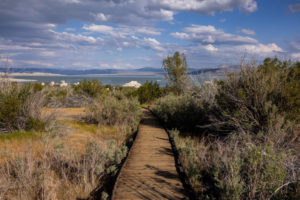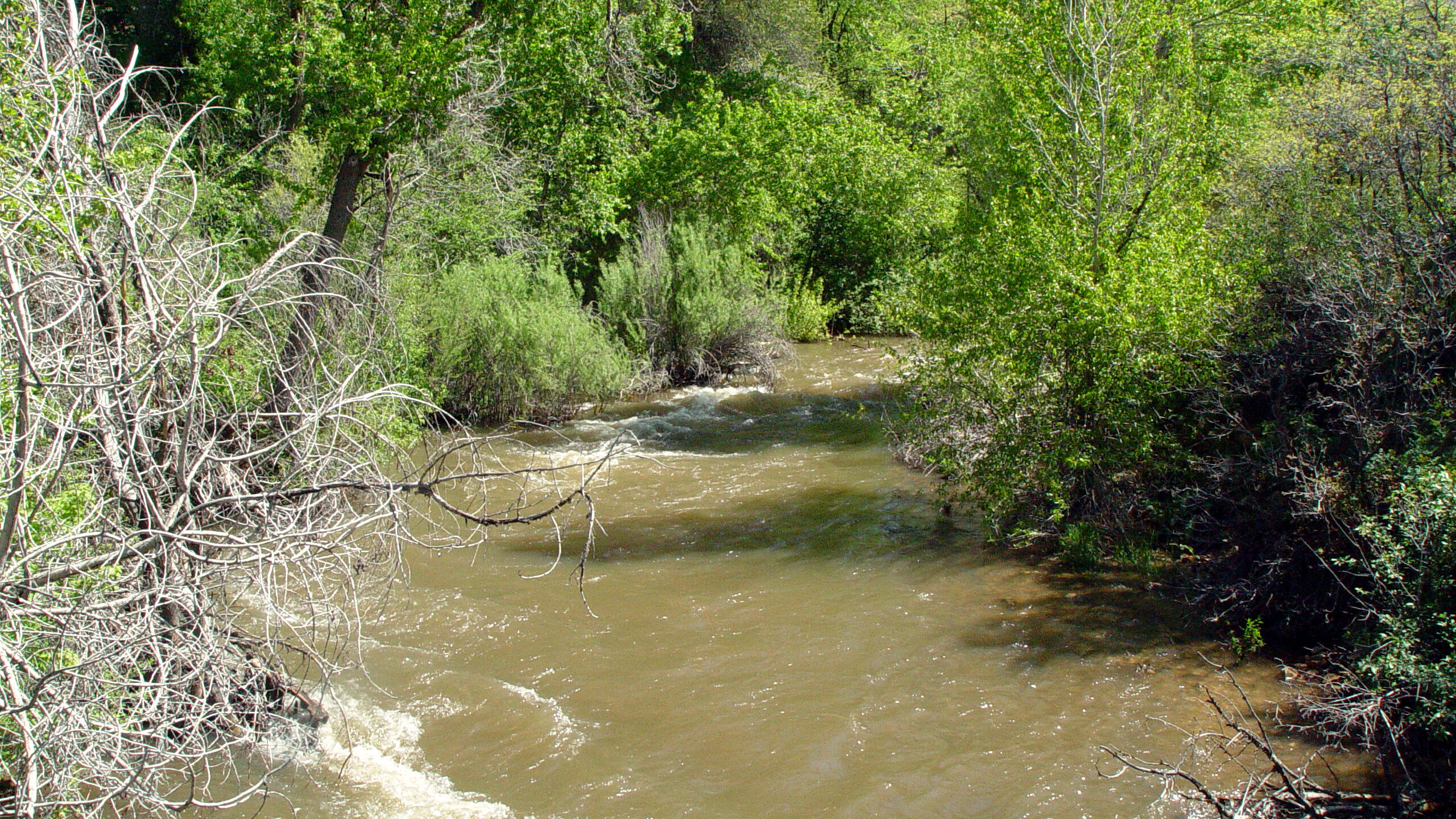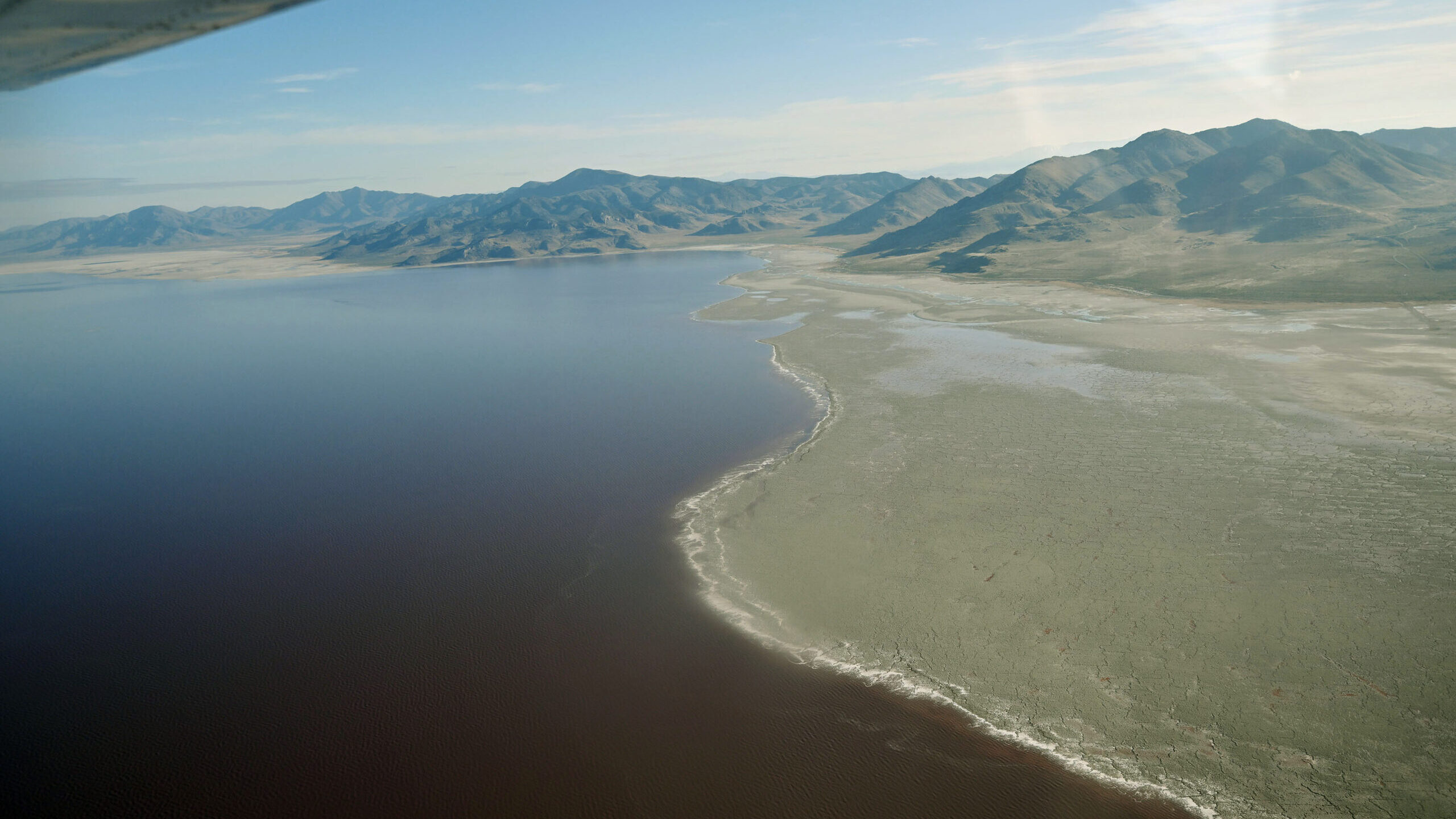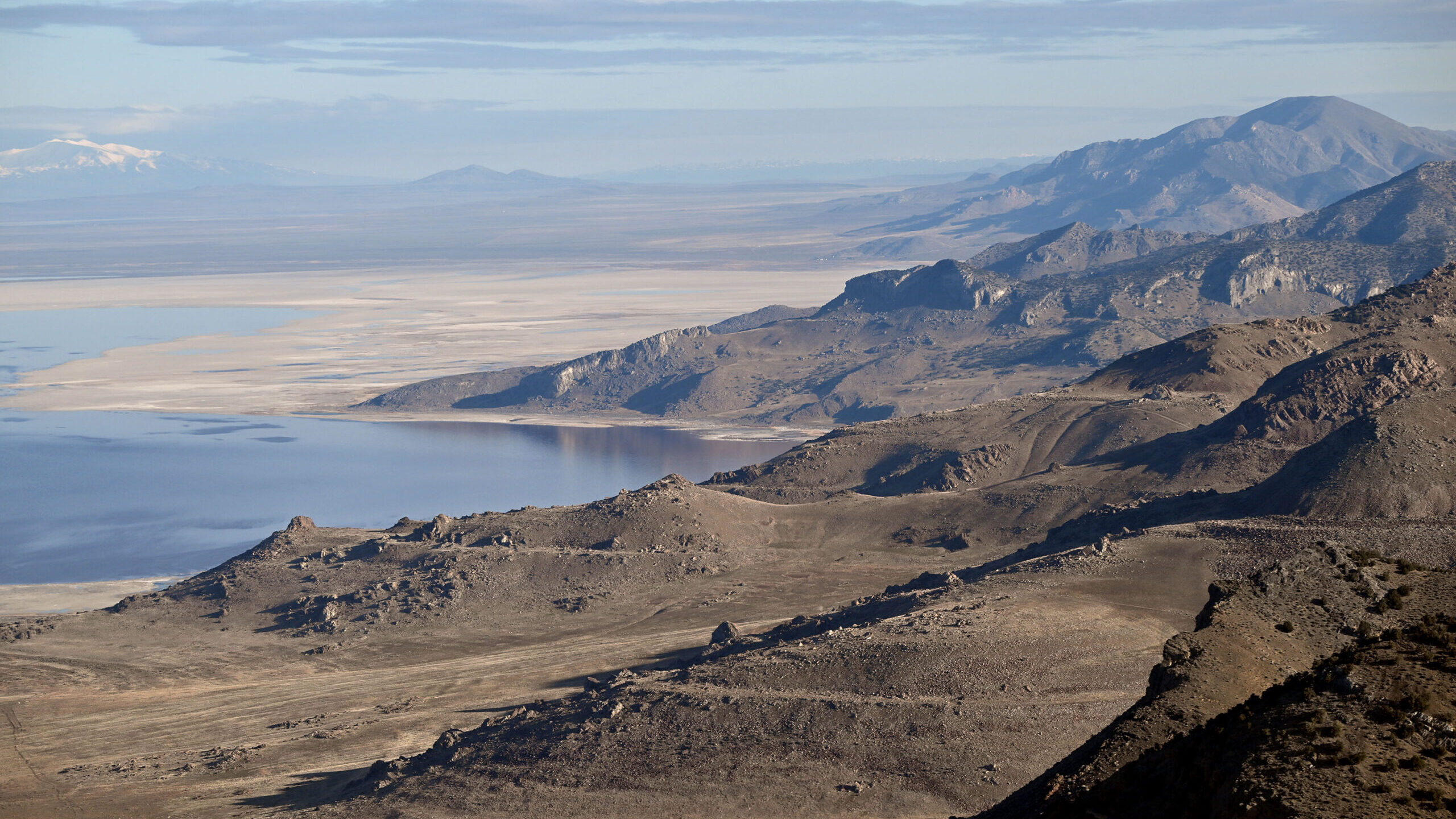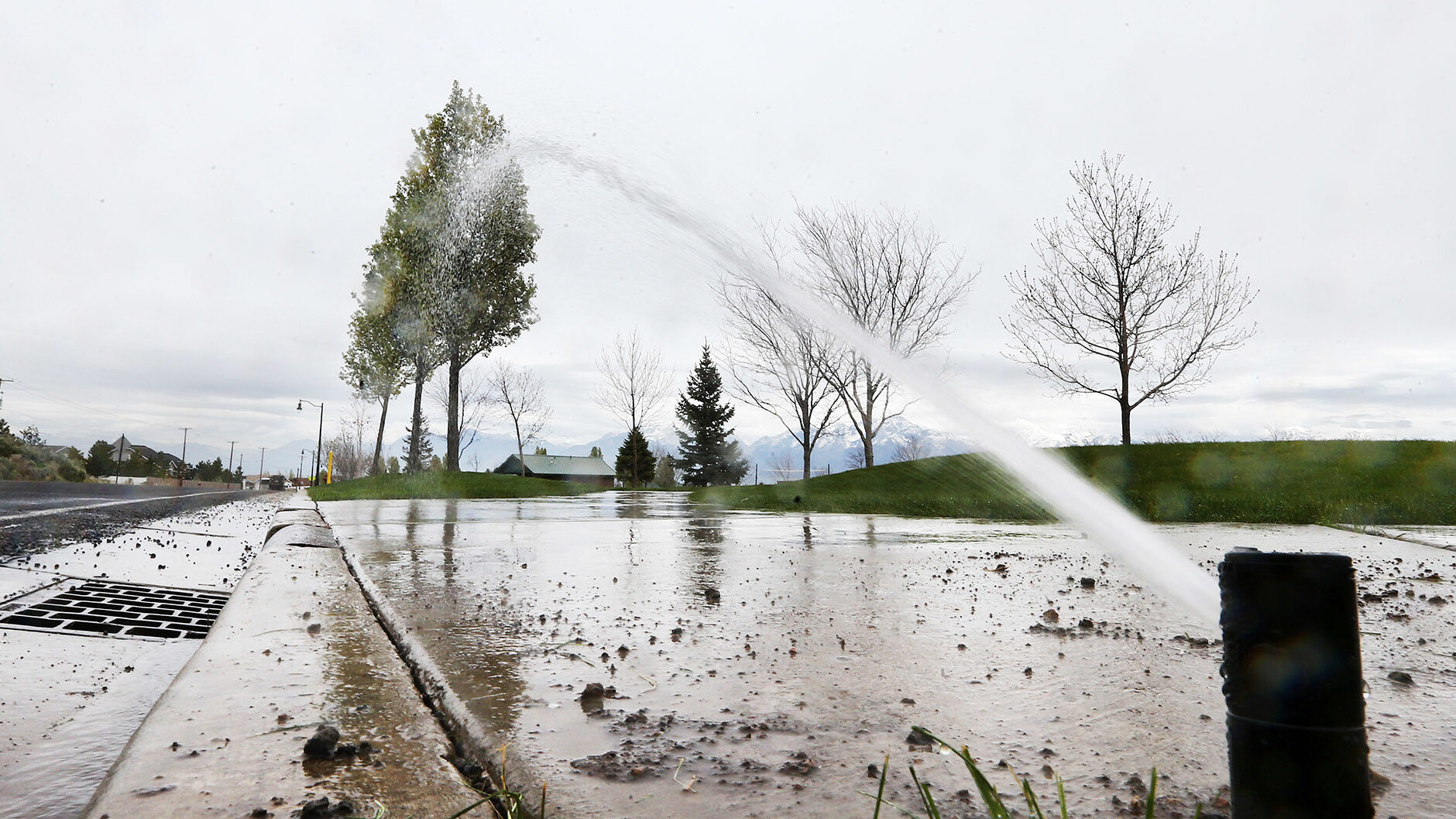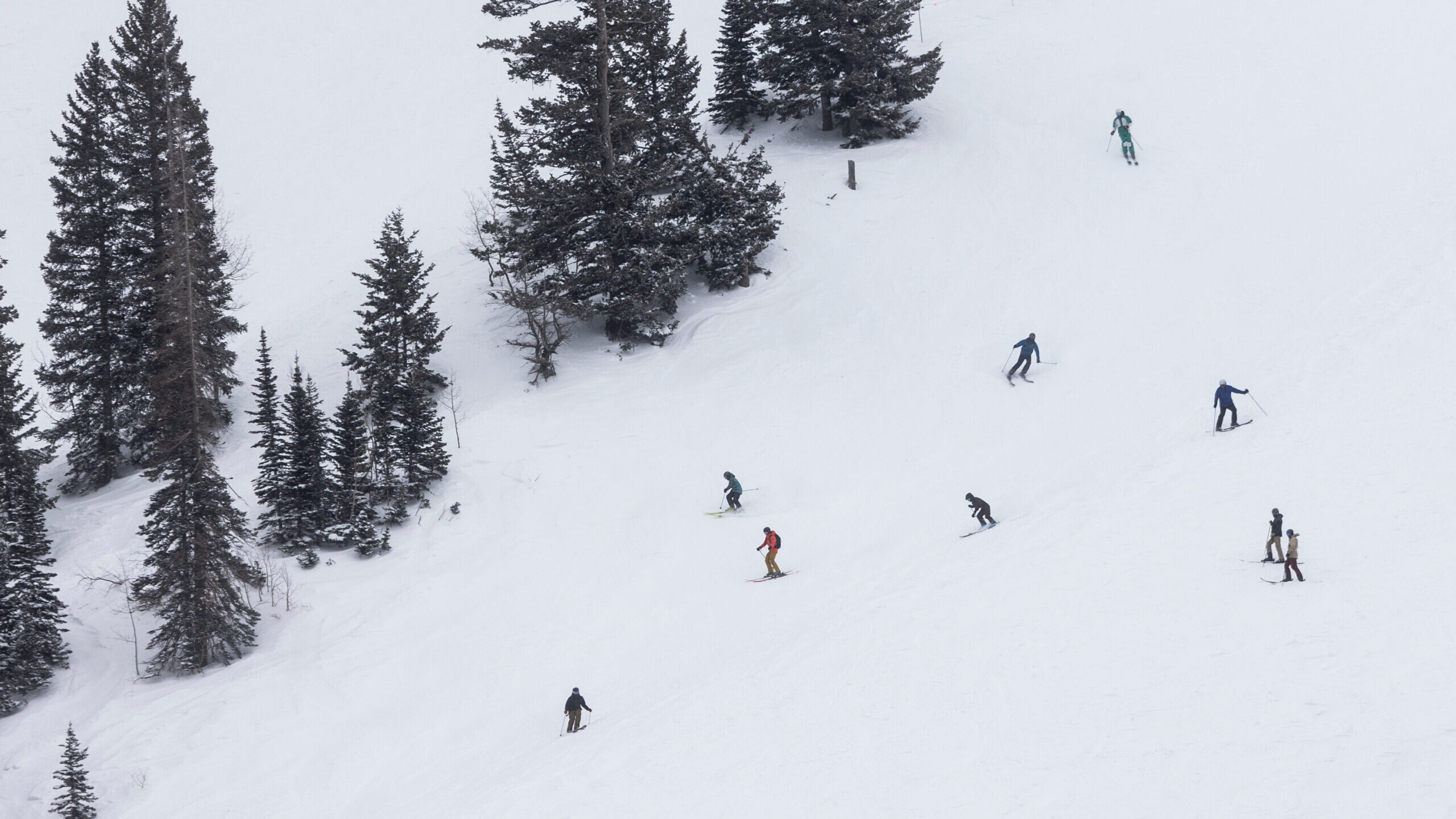The public trust doctrine prevented Mono Lake from drying up. Could it be used to save the Great Salt Lake?
Oct 12, 2022, 8:30 AM | Updated: 8:37 am
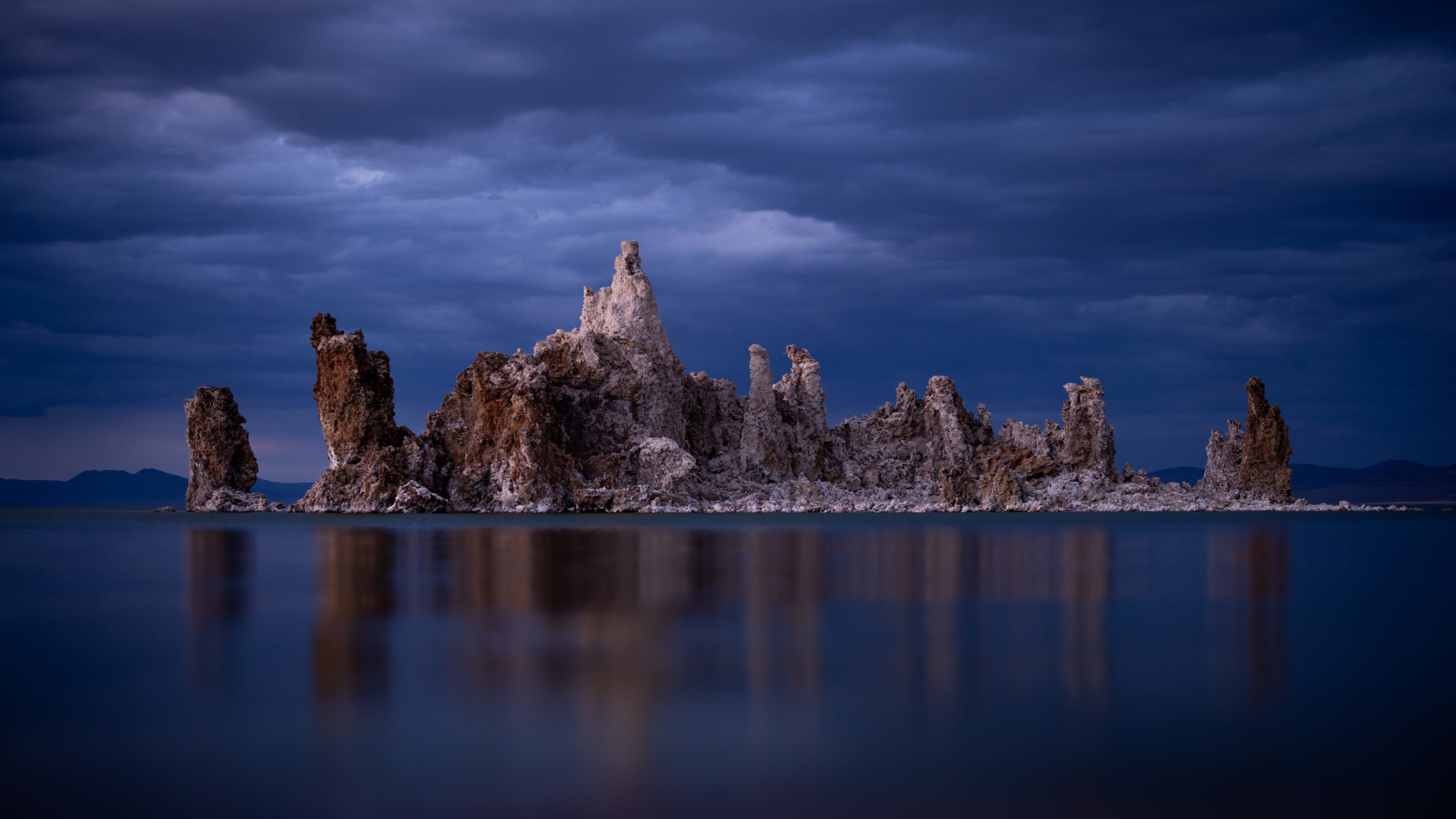
One of Mono Lake’s iconic tufa formations is pictured on the south shore of the lake in Mono County, California, on Monday, Aug. 8, 2022. (Spenser Heaps, Deseret News)
(Spenser Heaps, Deseret News)
This article is published through the Great Salt Lake Collaborative, a solutions journalism initiative that partners news, education, and media organizations to help inform people about the plight of the Great Salt Lake.
LEE VINING, Calif.– Amid climate change and growing water demands that are withering terminal lakes away, Mono Lake carries a rare hopeful message.
Owens Lake was one of the first cautionary tales about a salty lake with no outlet when it dried completely from human water consumption in Los Angeles. Lake Urmia in Iran and the Aral Sea in Central Asia followed, drained by scaled-up agriculture. All have since become sites of major dust storms. The Great Salt Lake finds itself heading down a similar path, overtapped by agriculture, cities and industry.
But Mono (pronounced “moan-oh”) Lake has emerged as a success story of sorts. Alarmed by the lake’s decline when its tributary rivers were diverted away to L.A., environmental advocates fought back.
“We basically said, ‘Hey, the state is in charge of water rights and you gave [away] these water rights,” said Geoff McQuilkin, executive director of the Mono Lake Committee. “What we see [as a result] is Mono Lake being destroyed. That doesn’t meet the public trust obligation of the state to protect resources for future generations.”
They took their case all the way to the California Supreme Court in the 1980s using that public trust doctrine argument.
And it worked.
The concept of a public trust has its roots in English law, and may date as far back as the Roman Empire. Various courts in various states have applied the doctrine throughout U.S. history, mostly to settle issues of water access. The Mono Lake decision was the first time the public trust argument secured a lake’s right to exist. Now L.A.’s water utility has to scale back its diversions until Mono Lake reaches a sustainable level.
So could someone apply the public trust doctrine in Utah to save the Great Salt Lake?
“[Mono Lake] was far simpler,” McQuilkin conceded, “than the multiple water right holders and complexities that are at the Great Salt Lake.”
A Draconian measure or a tool to force the state’s hand?
Some Utahns formed FRIENDS of Great Salt Lake in the 1990s after drawing inspiration from the Mono Lake Committee’s efforts. The group has a similar mission to educate and engage Utahns, helping them understand that the Great Salt Lake isn’t just a dead, empty sea.
While the public trust doctrine hasn’t been applied to the Great Salt Lake so far, “certainly, the lake is deserving of this kind of justice,” said Lynn de Freitas, executive director of FRIENDS. “It’s not that we haven’t talked about this very seriously internally and with others. It’s a big step to take.”
One complication is how, exactly, the public trust doctrine would solve the Great Salt Lake’s problems. At Mono Lake, the culprit depleting the lake was clear: a single utility in L.A. that could be obliged to reduce its consumption.
In Utah, a patchwork of cities, towns, agricultural fields and industries across the watershed have dropped the Great Salt Lake by as much as 11 feet, according to a Utah State University analysis.
“So who do you target [in] a public trust challenge?” de Freitas wondered. “… I’m not quite sure.”
If the public trust doctrine were applied to the Great Salt Lake, it would have to be done so uniformly to every tributary, including the Bear, Weber, Jordan and Provo rivers, along with everything in between, argued Utah water rights attorney Steven Clyde.
“All the water has been appropriated and applied for beneficial use” in the Great Salt Lake basin, Clyde said. “We have an awful lot of people who are dependent on that water. It’s the worst of all the horrible solutions.”
And lawsuits carry risk, because no one truly knows what the courts will decide. Utah has its own history and politics that set it apart from states like California.
“It’s not a gamble I think is wise to run,” Clyde said. “We would literally have to sue everybody in the drainage, because every diversion is impacting the lake.”
In 2016, Clyde wrote awhite paper offering solutions he considers “less draconian” than the public trust doctrine. They include concepts like water banking, which pools bought or leased water rights and rents the resource to those facing shortages. Or split-season leases in which a farmer uses a water right to get a cutting or two of hay, then sells the remaining water back to state regulators, who use it to bolster stream flows and, potentially, raise the Great Salt Lake.
Utah lawmakers have eliminated the legal barriers to these options in recent years, and even set aside a $40 million nest egg this year specifically for the Great Salt Lake that could be tapped for things like leases. The agricultural industry consumes around 63% of the water otherwise destined for the lake, and seems to be the sector most able to move the dial.
So far, though, no water right holders in the lake’s basin seem interested.
“To my knowledge, not 1 acre-foot of water has moved,” Clyde said. “I don’t believe they’ve spent any of that money.”
The state’s farmers, Clyde acknowledged, are wary. Water, after all, is key to their livelihoods.
“Until we have a few brave souls come forward and show that it works,” Clyde said, “I think it’s going to be tough to get there.”
All the while, the Great Salt Lake’s shores recede by the day, its ecosystem under stress, its vast exposed lakebed drying to dust. With Utahns unable or unwilling to experiment with other tools to save the lake, maybe it’s time to explore so-called draconian measures.
“It’s not too far of a stretch,” Clyde said, “that someone may file a lawsuit to force the state’s hand.”


